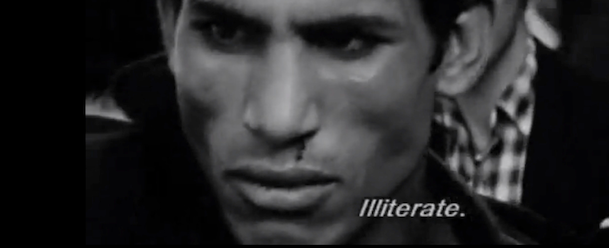[Editor's Note: If you would like to provide a critical, informed voice for Hear Nebraska, email info@hearnebraska.org. Or simply add a blog.]
by anonymous at This Band Sucks
To prove that we’re not simply picking on people we don’t like, we will begin by giving flack to someone who is asking for it the most.
HearNebraska recently published two articles on the same person: a feature story about the organization’s now-paid contributor, Michael Todd, and a review of his album, Coriolis, which is performed under his pseudonym, Elijah Jett.
?The feature story is about Todd himself, and his exhausting, pro bono work for HearNebraska, which he managed to balance astride a full-time job. It was compelling and good. Unfortunately ?I did not finish reading the ambitious, 300-word Elijah Jett “review” because as soon as the reviewer asked me imagine that “it’s the late afternoon and all of the adults are sleeping, and a few turtlenecked whiteys take a bottle of wine, a ukulele, and some scented candles into the attic,” I went into an uncontrollable drinking frenzy.
But the feature story wasn’t bad. It made him seem like a go-getter, and even though I hate go-getters, I searched for some of Todd’s articles so I might validate this implied aura of magnificence. What I found was this review that he wrote about South of Lincoln’s album, The Monsters/Bathroom Sessions. Here are the opening lines of that review (re-formatted into a poem, because otherwise you might not believe it):
“I can’t remember the last time I cried listening to music/Maybe it’s never happened before/But three songs into South of Lincoln’s The Monsters/Bathroom Sessions/and I was broken.”
So it made him cry. Perhaps this is a first. But I’m thinking he really sold the whole farm on this one. In any case, this guy is obviously full of shit. And if his own music is any indication, he spends a lot of time just waiting for the chance to cry. Elijah Jett’s songs incorporate a Sears Catalog of Enlightenment-era imagery (the Enlightenment up to WWI, and no further), taking us back to a time when the world was an attainable mystery, when man had reason to seek hope somewhere in the impenetrable noumena of the human soul. He sings about whiskey, trains, “lass”es, and astrologers. Think, for instance, of the Decemberists with a beat machine. And synthesizers.

The album (though I hesitate to call it an album, which might lead you to think it ismerely music!) is melodic and clear, and the vocals are, I think, what Elijah Jett wants us to focus on. Of course, some of these songs are just instrumental ditties with lounge riffs played over a beat. But those lucky tracks which are blessed by his awesome lyrics are abstract and hyper-personal. They’re like Civil War diary entries, except that he rarely situates the abstractions within a recognizable reality. What we are left with is a delicately woven fabric of underdeveloped, crayola images in space. It is an ode to the private imagination of Elijah Jett, and nobody else. Occasionally he will toss around a concrete item. He will move from the enigmatic “idyll[s] of the future” to a memory-dense vestige like his “grandfather’s flask,” which, surely, must be poignant for somebody. Right?
Well, I guess we can’t all be expected to understand the complex inner-workings of a mind like Elijah Jett’s.
The main problem, however, is not the music. Thirty-second samplings of his songs are actually pretty good, in some cases. But the lengthy, self-possessed nature of his writing and the monolithic grandeur of his website(s) demonstrate that Elijah Jett intends to beget, mythologize, and then franch-ize himself before anyone even has a chance to listen. He writes of Coriolis:
“I hope to chronicle my search for home in the hearts unknown. I’ve sought the comfort of my childhood in love, God, nature and music, among all other things. Here is how it never ends.”
This is one of the most vapid self-postulations I have ever read. He is chronicling his search for home? He’s got a college degree and a paid gig at HearNebraska.
I am tempted to ask any one of his 83 Facebook fans if the man lives up to the legend. Is he the lonesome, home-seeking wanderer? Is he the grain-cut troubadour? Or, at live shows, does he pause between songs to remind listeners to check out his SoundCloud (he does)?
The proselyte of guitar-majesty that we encounter in the “About” section of his website does not extend from a legacy that was built over time. It was something he typed up, probably in a single afternoon, probably while curing his whiskey hangover with a cup of coffee, and cream, and sugar, milk, honey, agave nectar, non-dairy creamer, listening to his favorite Neva Dinova record all the while.
We will wait patiently for the HearNebraska review to catapult him (catapult, because any other contraption would be too modern) into a level of success anticipated by his website(s). But if it never does, there are other ways. Maybe the organization that employs him can praise his next album, and we can try this once again.




